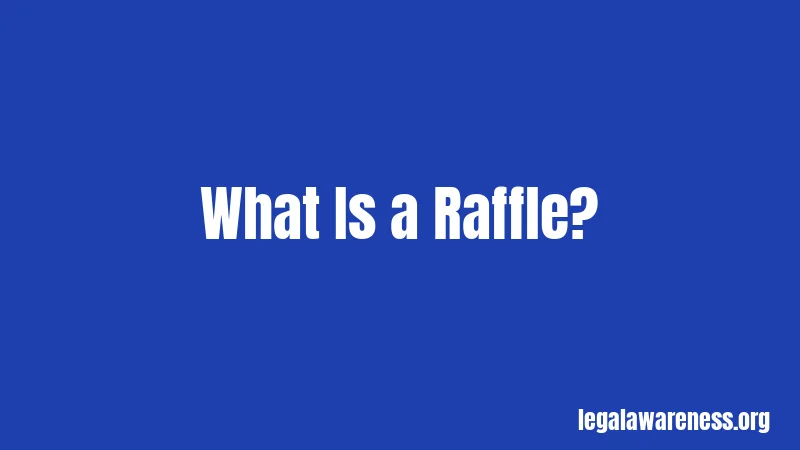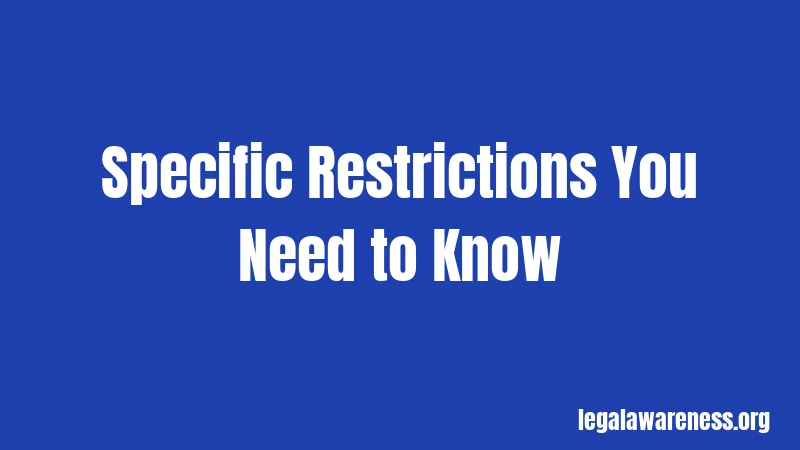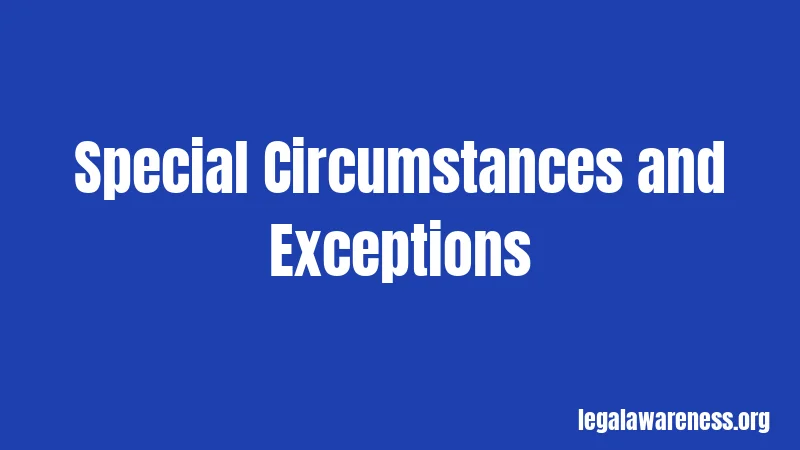Pennsylvania Raffle Laws in 2026: Your Complete Guide
Most people have no idea that raffles are heavily regulated in Pennsylvania. Seriously. But they are, and breaking the rules can cost you big. Whether you’re organizing a charity raffle or just curious about what’s legal, you need to know the specifics.
Here’s what we’ll cover: what qualifies as a raffle, who can legally run one, what penalties you face for breaking the rules, and how to stay on the right side of the law. Let’s break it down.
What Is a Raffle?

Think of a raffle as a lottery where people buy chances to win a prize. The winner is drawn randomly. Pretty straightforward, right?
In Pennsylvania, a raffle is legally defined as a drawing where someone gives you a chance to win a prize in exchange for money or something of value. The key word here is “chance.” You’re not earning the prize through skill. You’re hoping luck is on your side.
This definition matters because it determines whether Pennsylvania’s strict gambling laws apply to you. And trust me, they do apply to almost any raffle you might organize.
Basic Pennsylvania Raffle Laws
Who Can Run a Raffle?
Here’s where it gets specific. Not everyone can legally run a raffle in Pennsylvania. Only certain organizations are allowed to do it.
Nonprofits and charitable groups can run raffles. That includes religious organizations, veterans groups, and community service organizations. They must be registered and in good standing. If your organization fits this description, you’re allowed to proceed. Just not without following the rules.
For-profit businesses and private individuals cannot legally run raffles. Period. This is where most people get in trouble. You can’t just decide to hold a raffle to raise money for personal use or to boost your business profits.
School groups and parent-teacher organizations can also run raffles in some cases. The rules for schools are a bit different, but the basic principle stays the same. You need official approval.
Wondering if your organization qualifies? Check with Pennsylvania’s attorney general’s office or the state lottery commission. They can tell you exactly where you stand.
License and Registration Requirements
Okay, here’s the important part. Most raffles in Pennsylvania require a license before you run them.
You need to apply for a raffle license with the Pennsylvania attorney general’s office or your county’s Unified Judicial System. The application asks for details about your organization, the raffle structure, and how you’ll use the money. Yes, all of it.
The application fee varies depending on your organization type. You might pay anywhere from $25 to $100. Small price compared to the penalties if you skip this step.
Processing takes time. Submit your application well in advance. Don’t wait until a week before your raffle to apply. That’s a recipe for failure.
One more thing: you need to post your license number on all raffle tickets and promotional materials. People need to see that you’ve done the paperwork. It builds trust and keeps you legal.
Ticket Requirements
Raffle tickets must include specific information. This isn’t optional.
Your tickets need to show the price of each ticket. They need to clearly state what the prizes are. They also need to show when and where the drawing will happen. And they must display your raffle license number.
Tickets must be sold only in Pennsylvania. You can’t mail raffle tickets out of state or sell them online to people outside Pennsylvania. State lines matter here.
The tickets can’t be sold for less than $1 each. Period. That’s the floor. You can charge more, but not less.
Specific Restrictions You Need to Know

Prize Limits
Not sure what counts as a valid prize? Let me break it down.
Prizes can be merchandise, cash, or gift cards. Basically, if you can see it or spend it, it probably qualifies. But there are limits on how much each prize can be worth.
Individual prizes cannot exceed $5,000 in value. That’s the maximum. If you want to give away a car worth $30,000, you can’t do it through a raffle without special approval. And getting that approval is basically impossible.
Total prize value across your entire raffle cannot exceed $25,000. So if you’re planning multiple drawings or a large raffle, keep that total number in mind.
Sound complicated? It’s actually not. Calculate all your prizes, add them up, and make sure the total stays under that limit. Done.
Ticket Sales Timing
Here’s where timing gets important. You can’t just run a raffle whenever you feel like it.
Tickets must be sold within a specific window. You typically have 30 to 90 days depending on your organization type. The attorney general’s office will specify the exact dates when you get your license.
The drawing itself must happen within a reasonable time after ticket sales end. We’re talking days or weeks, not months. You can’t sell tickets for six months and then hold a drawing a year later.
Hold on, this part is important. You need to announce when the drawing will happen before you start selling tickets. No surprises on the back end.
Where Tickets Can Be Sold
Not every location is legal for selling raffle tickets. Venues matter.
You can sell tickets at your organization’s facility or at events hosted by your organization. A church can sell raffle tickets at church. A veterans group can sell them at their post. That makes sense.
You can also partner with local businesses to sell tickets at their location, but only with written permission. Get that permission in writing. It’s your protection if anyone questions the legality later.
You cannot sell tickets at bars, liquor stores, or casinos. You cannot sell them on streets or in parking lots without specific approval. And you absolutely cannot sell them online, even if you want to.
Penalties and Consequences
Now let’s talk about what happens if you break these rules. And this is serious.
Running an unauthorized raffle is a misdemeanor in Pennsylvania. You could face fines up to $300. That’s the minimum. But that’s just the start.
If you run a raffle without a license when you should have one, you could be charged with illegal gambling. That’s a second-degree misdemeanor. You’re looking at potential jail time up to two years. Plus fines up to $5,000. This is not a small fine situation.
Think of it like this: it’s worse than a traffic ticket, but less severe than a felony. Still, we’re talking criminal charges here.
Selling counterfeit or unauthorized raffle tickets carries similar penalties. If you print fake tickets or sell tickets from an unlicensed raffle, you’re committing fraud. That’s a serious charge.
Misusing raffle proceeds is also illegal. If you collect money for a charity raffle but keep it for personal use, that’s theft. You could face up to five years in prison and tens of thousands in fines.
Wait, it gets better. If your organization runs an illegal raffle, the organization itself can be fined. Your nonprofit status could be revoked. You could lose your ability to run any gambling activities in the future.
Special Circumstances and Exceptions

Charity Raffles vs. Prize Drawings
Honestly, this one confuses a lot of people. Are they the same thing?
Not exactly. A prize drawing might have slightly different rules depending on how it’s structured. Some drawings aren’t technically raffles under Pennsylvania law.
If you give something away for free and just randomly select a winner, that might not be a raffle. The person didn’t pay for the chance to win. But if people enter by buying tickets, it’s a raffle.
When in doubt, assume it’s a raffle and follow the rules. That’s the safest approach.
School and Youth Organization Raffles
Schools get some special treatment, but don’t get excited. There are still rules.
Parent-teacher organizations can run smaller raffles without all the formal licensing requirements. These are called “limited raffles” or “social raffles.” The prize value is typically lower, and the process is less formal.
You still need to register. You still need to follow ticket sales rules. You still need to keep records. The main difference is fewer administrative hurdles.
Check with your school district about their specific rules. Some have additional requirements beyond state law.
Hybrid Raffles and Online Components
Can you run a raffle and also offer an online entry option? Nope.
Pennsylvania does not allow purely online raffles. You cannot accept entries exclusively through the internet. You cannot run a raffle where people buy tickets on a website.
You can mention your raffle on a website. You can provide information online. But the actual ticket sales must happen in person in Pennsylvania.
This rule exists because online gambling is tightly controlled in Pennsylvania. Raffles and gambling are treated similarly under state law.
How to Legally Run a Raffle in Pennsylvania
Here’s the step-by-step process to do this right.
Step 1: Verify Your Organization’s Eligibility
First, confirm your organization qualifies under Pennsylvania law. Most nonprofits do. For-profit businesses don’t. Personal raffles are a no-go.
Step 2: Obtain an Application
Contact the Pennsylvania attorney general’s office or visit their website. You can download the raffle license application from there. It’s a straightforward form.
Step 3: Complete Your Application
Provide details about your organization, the raffle’s purpose, the prizes, ticket price, and how long tickets will be sold. Be honest and thorough. Lying on the application creates serious problems.
Step 4: Submit With Payment
Mail or deliver your completed application with the license fee. Include documentation showing your organization is registered and in good standing.
Step 5: Wait for Approval
The state reviews applications. This takes time. Budget at least 2-3 weeks. Don’t wait until the last minute.
Step 6: Get Your License Number
Once approved, you’ll receive a license number. This number goes on every ticket. Every promotional material. Every reference to the raffle.
Step 7: Print Compliant Tickets
Your tickets must include the required information. Use the license number from step 6. Make sure the ticket price, prizes, and drawing date are all clearly visible.
Step 8: Conduct Your Raffle
Sell tickets within the approved timeframe. Hold your drawing as promised. Document everything.
Step 9: Report Results
File a report with the state showing how many tickets you sold, total revenue, prizes awarded, and expenses. This keeps everything transparent.
Step 10: Use the Proceeds Properly
Spend the raffle money on whatever your license approved. If it was for a building fund, it goes to the building. If it was for community programs, it goes there. Not to personal accounts.
Trust me, this works. Following the steps keeps you legal and keeps your organization’s reputation intact.
Frequently Asked Questions
Can I run a raffle if I’m not a nonprofit?
No. Only nonprofits, charities, religious organizations, and certain school groups can legally run raffles in Pennsylvania. For-profit businesses and individuals cannot.
What if I run a small raffle just for fun with friends?
Even small raffles need licenses if money changes hands. Social raffles among friends might have limited licensing requirements, but you still need to follow the law.
Can I sell raffle tickets online to Pennsylvania residents?
No. Tickets must be sold in person in Pennsylvania. Online ticket sales are not permitted under current state law.
What’s the difference between a raffle and a lottery?
Lotteries are run by the state. Raffles are run by licensed organizations. The rules are very different, and you cannot run a lottery privately.
How long do I need to keep records of my raffle?
Keep all raffle records, ticket sales records, and expense documentation for at least three years. The state might request them for audits.
What if I accidentally break a raffle rule?
Contact the attorney general’s office immediately. Explain the situation. Some minor violations might be corrected without severe penalties if you fix them quickly and honestly.
Can multiple organizations run a joint raffle?
Yes, but all organizations involved must be eligible to run raffles. You’ll need to coordinate on the license application and clearly state the partnership.
Are scratch-off tickets the same as raffle tickets?
Yes, scratch-offs and pull-tab tickets generally fall under the same rules as raffles. They need licenses and must follow the same regulations.
Final Thoughts
Pennsylvania takes raffles seriously. The laws exist to protect consumers and prevent fraud. Following them isn’t just legally required. It protects your organization’s reputation and your personal freedom.
The key points to remember: only eligible organizations can run raffles, you need a license, tickets must include required information, and prizes have limits. Break these rules, and you’re facing criminal charges.
Do yourself a favor. If you’re planning any kind of raffle, start by contacting the Pennsylvania attorney general’s office. They can answer specific questions about your situation. When in doubt, ask. It costs nothing and protects everything.
Now you know the basics. Stay informed, stay legal, and when in doubt, look it up or ask a lawyer. Your organization will thank you.
References
Pennsylvania Attorney General’s Office: Raffle Licensing Information
Pennsylvania Lottery: Charitable Gaming Regulations
Pennsylvania Code Title 4: Amusement, Gambling Laws
